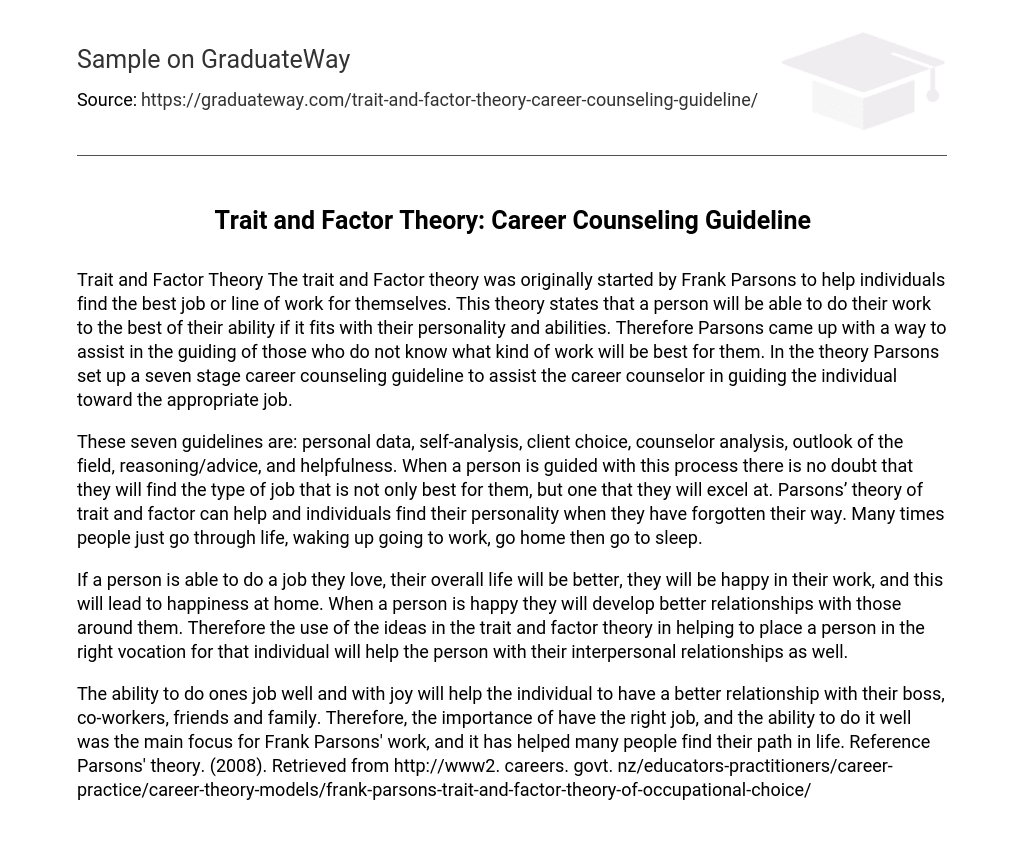Trait and Factor Theory The trait and Factor theory was originally started by Frank Parsons to help individuals find the best job or line of work for themselves. This theory states that a person will be able to do their work to the best of their ability if it fits with their personality and abilities. Therefore Parsons came up with a way to assist in the guiding of those who do not know what kind of work will be best for them. In the theory Parsons set up a seven stage career counseling guideline to assist the career counselor in guiding the individual toward the appropriate job.
These seven guidelines are: personal data, self-analysis, client choice, counselor analysis, outlook of the field, reasoning/advice, and helpfulness. When a person is guided with this process there is no doubt that they will find the type of job that is not only best for them, but one that they will excel at. Parsons’ theory of trait and factor can help and individuals find their personality when they have forgotten their way. Many times people just go through life, waking up going to work, go home then go to sleep.
If a person is able to do a job they love, their overall life will be better, they will be happy in their work, and this will lead to happiness at home. When a person is happy they will develop better relationships with those around them. Therefore the use of the ideas in the trait and factor theory in helping to place a person in the right vocation for that individual will help the person with their interpersonal relationships as well.
The ability to do ones job well and with joy will help the individual to have a better relationship with their boss, co-workers, friends and family. Therefore, the importance of have the right job, and the ability to do it well was the main focus for Frank Parsons’ work, and it has helped many people find their path in life. Reference Parsons’ theory. (2008). Retrieved from http://www2. careers. govt. nz/educators-practitioners/career-practice/career-theory-models/frank-parsons-trait-and-factor-theory-of-occupational-choice/





